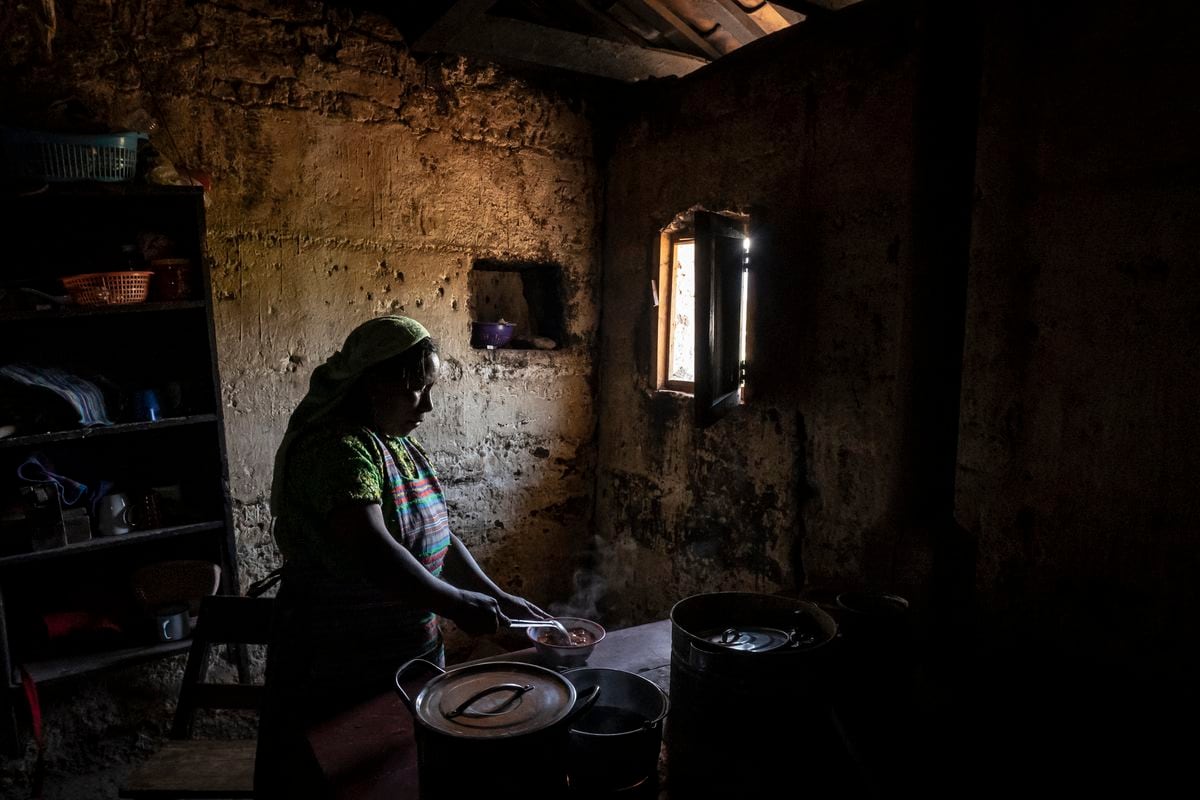Epidemic, endemic and herd immunity... Where is covid-19 going?
5:05
(CNN Spanish) --
As the omicron variant continues to impact the world, the United States Centers for Disease Control and Prevention (CDC) add more destinations to its "very high" list risk from covid-19, including several Latin Americans and Caribbean islands.
But what does this label mean and what do I need to do before I travel?
The CDC's recommendation is to avoid travel to "very high" (Level 4) destinations, which earned a place on the list after registering more than 500 cases of covid-19 per 100,000 residents in the last 28 days, based on data from cases reported to the World Health Organization (WHO).
What covid-19 diagnostic test should I take to find out if I have been infected with omicron?
Dr. Leana Wen, CNN Medical Analyst, ER Physician, and Professor of Health Policy and Management at George Washington University's Milken Institute School of Public Health says that while transmission rates are an important guide when making a decision travel, there are other factors that must also be weighed.
"Another is what precautions are required and followed where you're going, and then the third is what do you plan to do once you're there," Dr. Wen said.
"Do you plan to visit a lot of attractions and go to bars inside? That's very different from going to a place where you plan to lay on the beach all day and not interact with anyone else. That's very different. Those are very risky levels." different," he added.
advertising
Among the destinations listed as "very high" risk are several Latin American countries and Caribbean islands, such as Argentina, Colombia, Panama, Peru, Puerto Rico, the Dominican Republic, Haiti, the Bahamas, among others.
Here are a couple of tips to keep in mind before you pack your bags.
Considerations when traveling
The CDC recommends being fully vaccinated against COVID-19, as vaccines offer protection against serious illness, help slow the spread of COVID-19, and reduce the number of new variants.
Also, unvaccinated travelers are more likely to get sick and spread COVID-19 to others, Dr. Wen said.
How long you can wear your N95 mask, according to experts
In the event of not being fully vaccinated, the CDC recommends taking a viral test 1-3 days before travel.
The use of high-quality masks, such as N95, KN95 or KF94, in crowded interiors is also important, regardless of whether or not it is a requirement of the destination country;
as well as consider what you would do if you end up testing positive during the trip.
Where will you be staying and how easy is it to get tested so you can return home?
Before traveling to any of the destinations in Latin America and the Caribbean that are on the CDC's "very high" risk list, take into account the following:
If you must be fully vaccinated to enter.
Some countries only accept fully vaccinated foreigners.
Possible exemptions for people with all vaccinations, people recovered from a recent case of covid-19, or children.
Submission of negative covid-19 test results for entry, including time limits for testing, types of tests allowed, and additional tests upon arrival.
Possible quarantines and their duration, as well as health exams upon arrival.
Health insurance requirements, curfews and closures.
Different rules if you arrive from a third country, as well as the rules for entry by land and sea, which may differ from arrivals by air.
Country Requirements
(Credit: RAUL ARBOLEDA/AFP via Getty Images)
Before traveling to a country marked "very high" risk by the CDC, check the requirements of each country, since according to the progress of covid-19 cases, nations can change their rules with little notice.
Restrictions may include vaccination requirements, mandates to wear masks, or quarantines.
Check what are the requirements and limitations of each country that is listed as "very high" risk by the CDC in Latin America and in some Caribbean destinations:
Argentina
: United States Embassy |
CDC Notice |
Argentine Government
Belize:
United States Embassy |
CDC Notice |
Belize Tourism Board
Bolivia:
Embassy of the United States |
CDC Notice
Colombia:
United States Embassy |
CDC Notice |
Colombia tourism website |
Colombia Migration Portal
Costa Rica:
United States Embassy |
CDC Notice |
Costa Rica tourism website |
health pass form
Guyana:
Embassy of the United States |
CDC Notice |
Guyana Ministry of Health
The Bahamas:
United States Embassy |
CDC Notice |
Bahamas Tourism Website |
Bahamas Health Travel Visa
Panama:
United States Embassy |
CDC Notice |
Visit Panama |
Health affidavit
Peru:
Embassy of the United States |
CDC Notice |
Lima airport protocols |
PROMPERU |
Health affidavit
Dominican Republic:
United States Embassy |
CDC Notice |
Dominican Republic tourism website |
Electronic entry and exit form
Suriname:
Embassy of the United States |
CDC Notice
Uruguay:
United States Embassy |
CDC Notice |
Government of Uruguay |
Health affidavit
CNN's Forrest Brown contributed to this report.
coronavirus







/cloudfront-eu-central-1.images.arcpublishing.com/prisa/EMYXC3EVHNEG3OJHGIQCB2IVYA.jpg)



/cloudfront-eu-central-1.images.arcpublishing.com/prisa/KMEYMJKESBAZBE4MRBAM4TGHIQ.jpg)



